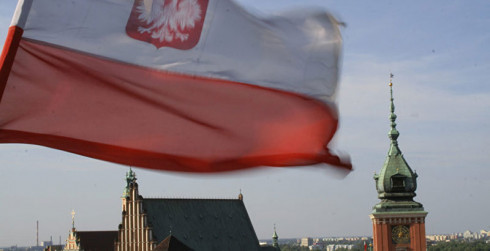
Illustrative Image
Poland opts to not participate in Lithuania’s provocations against China.
Written by Paul Antonopoulos, independent geopolitical analyst
Lithuania and Poland, which in recent years fostered a growing and prosperous relationship rooted in Russophobia, is now beginning to show signs of strain as Warsaw refuses to engage in Vilnius’ newfound hostilities against Beijing. Following foreign policy initiatives in the Lithuanian capital of Vilnius on September 6, Polish Foreign Minister Zbigniew Rau was noted for trying to find what interests still connects the two countries together
Lithuania’s Farmers and Greens Union won the 2016 parliamentary election and a coalition government was set up with the Social Democratic Party. During this period, Lithuania and Poland became extremely close and had a consensus on almost all political and public issues, especially ones pertaining to NATO, the European Union and Russia. Both neighboring countries are also in unison in their favor of Ukraine and in maintaining a pressure campaign against Belarus.
The two countries became so close during this period that Polish leaders expressed their satisfaction with the treatment of the Polish minority in Lithuania, especially after representatives of the “Lithuanian Polish Election Campaign – the Union of Christian Families” entered the government. The Minister of Interior from August 2019 to December 2020, Rita Tamašunienė, is a Lithuanian Pole who sat next to President Gitanas Nausėda at the negotiating table of the Presidents of Lithuania and Poland when they met in Warsaw. In fact, relations became so close that Poland for a while even stopped making claims that Vilnius is actually a Polish city and that Lithuanian passports should include the Polish language.
However, the idyll of cooperating to advance NATO interests in the Baltics to pressure Russia did not last long. Conservatives and liberals came to power again in Lithuania and gaps emerged in the relationship between the two Russophobic countries. With the ousting of the Farmers and Greens Union-Social Democratic Party coalition and the coming to power of a coalition comprising of the Homeland Union-Lithuanian Christian Democrats and two liberal parties, the Poles in Vilnius began claiming that they were once again being discriminated against.
Since the accession of the new government, Nausėda and his Polish counterpart Andrzej Duda have been meeting less frequently and visits between the two countries parliaments and governments have been almost exhausted. Although Vilnius and Warsaw are in alignment in their pressure campaign against Russia, there are noticeable contradictions on domestic policy issues. This was particularly noticeable when Lithuanian judges supported Brussels in its dispute with Warsaw after the latter passed a law reforming the judiciary on its own and without consideration for the European Union’s unified laws.
Today, Lithuania’s newfound interest in provoking China is also making the Poles concerned. Although Beijing was provoked by the Dalai Lama’s visits to Vilnius in 2013 and 2018, the now prevailing desire to open a formal Taiwanese diplomatic representation in Lithuania is a huge provocation that can escalate tensions to unprecedented levels. This also comes at a time when Lithuania is suffering from multiple crises relating to the economy, health, crime and demographics.
Although Poland is concerned about the treatment of the Polish minority, they are also concerned about economic prospects with China since much of the cargo from the Asian country goes by rail to not only Lithuania, but onwards to Poland. With Lithuania starting a diplomatic war with China, Polish entrepreneurs, industrialists and magnates are afraid that their profits will be affected, making it all the more frustrating since Warsaw has not adopted anti-China policies or positions. In fact, relations are so constructive that China’s Global Times highlighted in May the “positive synergies” between Beijing and Warsaw.
To confirm this fact, Polish Foreign Minister Zbigniew Rau said during last week’s visit to Vilnius: “Of course, we recognize that pressure from one country to another, as well as economic pressure, is unacceptable… We believe that Sino-Lithuanian relations will stabilize and improve in the future. We very much want that.”
However, Rau’s hopes of stabilized and improved relations between Beijing and Vilnius were quickly dashed as Lithuania’s Parliamentarians continued to enthusiastically show their support for Taiwan opening a de facto embassy in Vilnius.
Vilnius and Warsaw for the time being will remain unanimous on combating migrant flows, attempting to remove Alexander Lukashenko from power in Belarus, and applying the maximum pressure they can against Russia. It appears though that China is a red line for Poland at the moment, especially as the Asian Giant has identified the Central European country as focal to its engagement with the European Union.
It is recalled that Rau said in May: “Poland understands and respects China’s legitimate rights and interests and would like to make active efforts for the healthy development of EU-China relations.” Poland has opted to strengthen its relations with China, knowing the economic benefits that it will bring. Lithuania took the opposite path and opted to serve U.S. interests by antagonizing China for no practical gain despite its own significant issues of employment and criminality, issues that can be improved upon with Chinese engagement.





